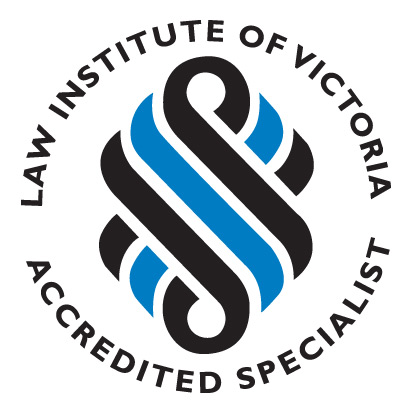The risks of being an executor – commissions and personal liability
Are you an executor of a Will? Before administering the estate, you should understand that this role involves risks such as personal liability for the expenses of administering the estate.
You also should be aware that you may be entitled to commission for your efforts in administering the deceased’s estate. It is important to understand the way commission is determined to ensure you are paid a correct and fair amount.
In the article below, we will address some of the key issues you need to consider when acting as an executor of a deceased estate.
Can an executor of a Will receive commission?
An executor of a Will is entitled to charge a reasonable commission for administering the assets of the deceased’s estate. However, executors are not automatically entitled to commission for their work and will need to make an application for commission to the Supreme Court under the relevant provisions of the Administration and Probate Act 1958 (Vic).
Alternatively, if all residual beneficiaries of the Will are adults, they can reach a unanimous agreement on the amount of commission to be paid to the executor. This agreement should be in writing and signed by all beneficiaries.
How is commission determined?
Generally, the Supreme Court may determine the amount of commission paid to an executor by taking into account factors such as:
- the size of the deceased’s estate;
- the type of care and responsibilities required of the executor;
- the amount of time an executor has invested in performing their duties;
- the care and diligence shown by the executor in performing their duties.
The amount of commission paid to an executor might typically range from 1 – 3% of all assets of the estate less all estate debts and liabilities. For example, see below scenario:
- an estate is worth $1.5 million.
- After the sale of the property, payment of outstanding mortgage, funeral, and other estate administration expenses, $1 million remains as part of the estate.
- In this scenario, the executor may be entitled to a commission of approximately $10,000 to $30,000.
If an executor is also a beneficiary under a Will, this does not mean they cannot also make a claim for executor’s commission. The Court will take into account how much has been left to the executor in their role as a beneficiary and will adjust any commission accordingly if granted.
To ensure you receive the correct and fair amount of commission for acting as executor, we recommend you speak to one of our experienced wills and estates lawyers.
Personal liability
Executors of a Will must ensure they comply with the terms of the Will and relevant legislation when administering the estate.
An executor’s duty to finalise the deceased’s tax affairs is possibly one of the most underestimated tasks. If an executor does not properly carry out their duties in this regard, they run the risk of becoming personally liable for the payment of the deceased’s tax liabilities. We strongly recommend executors talk to one of our wills and estates lawyers and also seek accounting advice at an early stage to avoid any potential tax liabilities.
What is usually involved in finalising a deceased’s individual tax affairs?
The executor is expected to notify the Australian Taxation Office (ATO) of the deceased’s death and arrange for any outstanding tax returns to be prepared and lodged. They must also arrange a final tax return for the deceased to be prepared and lodged and arrange payment of any tax liabilities.
An executor’s tax obligations under a Will may be more onerous if the deceased had any involvement with companies or trusts, operated a business or was the trustee or member of a self-managed superannuation fund.
Executors should also understand that the estate’s tax affairs are different from the deceased’s individual tax affairs. Estates are treated as trusts for tax purposes, so an executor should:
- obtain a tax file number for the estate
- arrange and ensure that tax returns are prepared and lodged with the ATO; and
- ensure payment of any tax liabilities.
The above can involve a substantial amount of time as the executor would need to gather information and documents to finalise the deceased’s individual tax affairs. This can be onerous, especially if the deceased had a number of outstanding tax returns, did not use an accountant, or leave sufficient records and paperwork.
Key Takeaways
- Executors should seek legal and accounting advice when administering an estate to avoid becoming personally liable for the deceased’s outstanding tax debts.
- An executor should seek legal advice from one of our experienced wills and estates lawyers to ensure the estate is properly and efficiently administered.
- Our wills and estates lawyers can also advise on the amount of commission an executor is entitled to for their effort in administering a Will.
This information is for general purposes only and you should obtain professional advice relevant to your circumstances.
If you or someone you know wants more information or needs help or advice regarding administering a deceased estate, please contact us on (03) 9592 3356 or email office@citypacific.com.au to arrange a consultation with one of our wills and estates lawyers.


